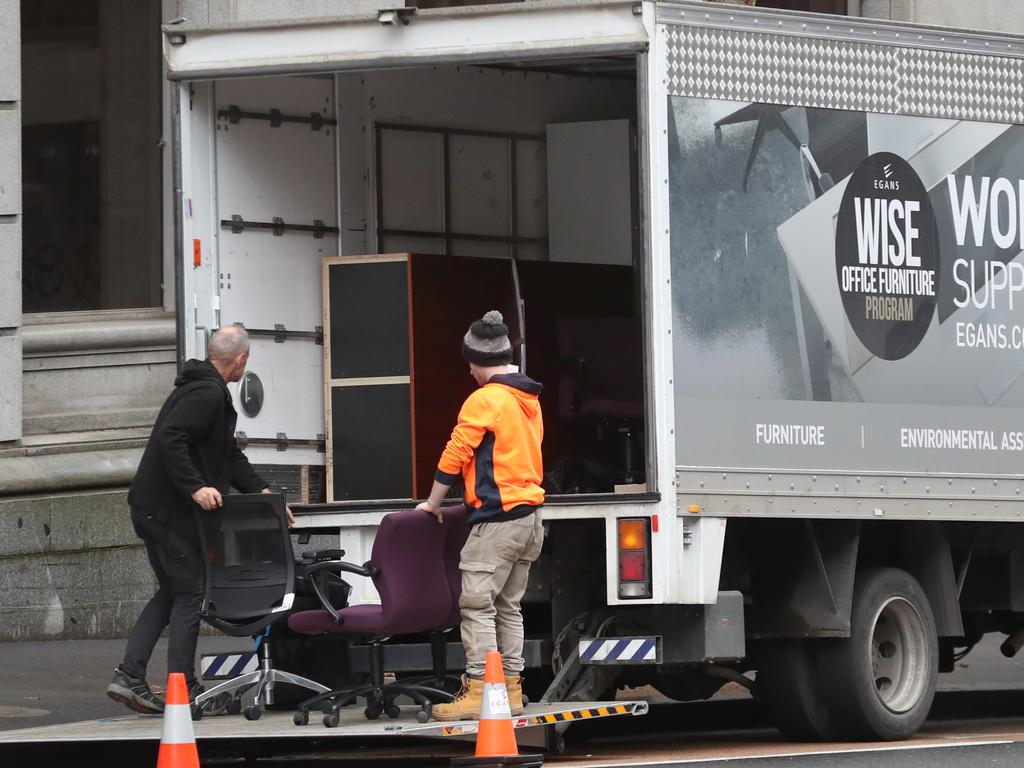Unpaid overtime costing Australians $8k in lost wages every year, research finds
It’s been revealed Australians are getting ripped off by their employers by $8000 on average every year. Here’s why.
The nation’s workplace laws could soon be amended to ensure Australians have the so-called right to disconnect to help stamp out unpaid overtime.
The Albanese government has flagged a second tranche of industrial relations reforms to come in 2023 as its contentious first package of reforms is set to be voted on in the Senate next week.
Labor senator Tony Sheldon said the right to disconnect from work outside of work hours should be “part of the conversation” about the next round of industrial relations reforms.
Senator Sheldon is the chair of an upper house committee examining work and care in Australia, which has recommended the government investigate changing the Fair Work Act to enshrine the “right to disconnect” for workers in every industry.
This amendment would protect people’s rights to disconnect from their job outside of contracted hours and enforce this right with their employer, including by appealing to the Fair Work Commission if necessary.
Senator Sheldon spoke to reporters at Parliament House on Wednesday to address the release of a new report which reveals Australians are working six weeks of unpaid overtime on average every year and missing out on more than $8000 in pay as a result.
“What’s particularly striking about these figures is that so many employers are going further and further in starting to bring more unpaid overtime into play,” Senator Sheldon said.
The report from the Australia Institute’s Centre for Future Work has found unpaid overtime is costing the workforce $92bn each year – roughly the same as the commonwealth’s annual expenditure on health care.

The left-wing think tank surveyed a representative sample of 1410 Australians over three days in September, asking them about their working habits in order to analyse “time theft”.
Seven in 10 workers reported performing work outside of scheduled working hours, while only 29 per cent indicated that they had not done overtime.
On average, respondents reported working 4.3 hours of unpaid overtime in the week of the survey, equivalent to about 224.3 hours per year per worker on average or six standard 38-hour work weeks.
Full-time workers reported working on average 4.9 hours in unpaid overtime per week.
The two youngest age groups – those between 18-29 and 30-39 – performed the most unpaid overtime at 5.2 and 5.3 hours per week respectively.
The Australia Institute found the average worker was losing $8188 per year or $315 per fortnight in wages because they weren’t being paid for all the time that they worked.
More than half of workers – 56 per cent – were unsatisfied with their working hours, with 10 per cent wanting fewer paid hours and 46 per cent seeking more paid hours.
People in casual employment were much more likely to want to work more paid hours.

Report author Eliza Littleton said the prevalence of overtime suggested so-called “availability creep” was eroding the boundaries between work and life.
“With workers’ share of national income at the lowest point ever, a focus on reducing unpaid overtime would improve quality of life and ease the cost of living pressure for millions,” she said.
The release of the report comes as Queensland state school teachers have secured the “right to disconnect’’ and ignore work calls and emails from principals and parents after school in their next enterprise agreement.
Workers’ wages and employment rights have been in the spotlight in recent months as Labor tries to get its first, wide-ranging package of industrial relations reforms through parliament.
The government says its Secure Jobs, Better Pay Bill will “get wages moving again” by improving the enterprise bargaining system to make it easier for workers and employers to negotiate conditions.
But employer groups and the opposition have lashed most of the reforms – warning they will lead to widespread industrial action to the detriment of small businesses and allow unions undue influence in workplaces.
Labor doesn’t hold a majority in the Senate and needs the backing of The Greens and one crossbencher to get the legislation through.
Independent ACT senator David Pocock is expected to cast the deciding vote, but he is yet to reveal his position.



